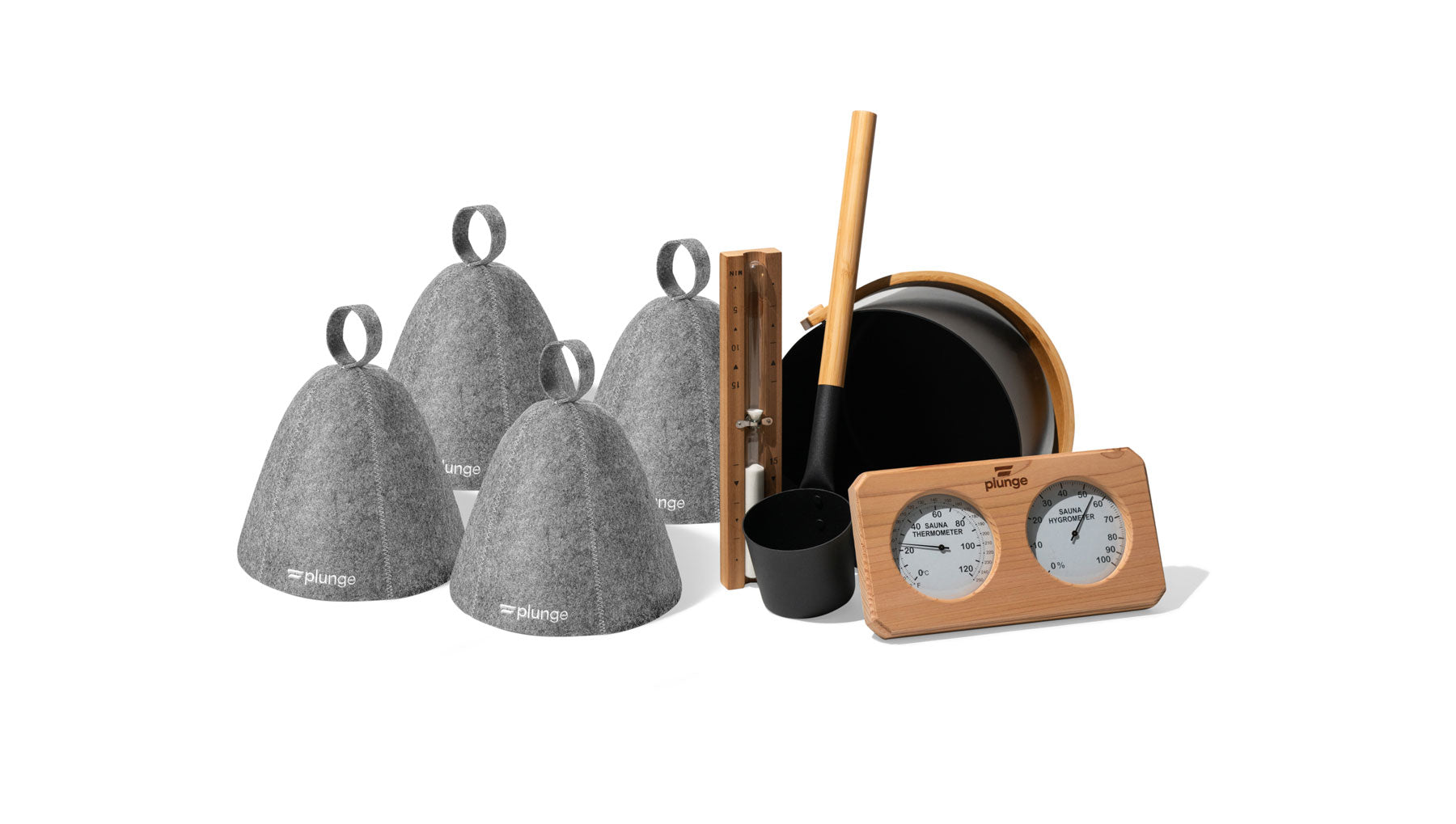
How Ice Baths Help with Inflammation
You've likely heard about the growing trend of submerging in ice-cold water, better known as ice baths or cold plunging. Ice baths have been gaining popularity among both athletes and everyday people who want to feel better and build resilience. But why exactly are people braving the chill? One of the many benefits of the ice bath is its potential to manage inflammation, our body's response to injury or stress.
In this blog post, we'll delve into the complex world of inflammation, unravel the science behind how ice baths help reduce it, and explore why this should matter to you and everyone who calls themselves human.
Whether you're dealing with an acute injury, muscle soreness after a strenuous workout, or long-term inflammation, understanding the role of ice baths can significantly benefit your training regimen and overall health.
Inflammation: A Double-Edged Sword
Inflammation is the immune system's natural defensive response designed to protect our bodies from harm. It plays a crucial role in safeguarding us against injuries and infections. When a threat is detected, the body's defense mechanism initiates an acute inflammatory response.
This response leads to increased blood flow to the affected area and increased immune activity. Although this might result in redness, swelling, and pain, it's actually a positive indication that the body is working hard to heal itself.
However, when this inflammation does not resolve over time and persists, it turns into chronic inflammation. Unlike acute inflammation, chronic inflammation is systemic, meaning it can affect the entire body and often occurs without noticeable symptoms.
Over an extended period, this low-grade inflammation contributes to various health issues. Chronic inflammation has been linked to a host of diseases, including heart disease, obesity, diabetes, cancer, neurodegenerative disorders, and even mental health disorders.
It's crucial to control and manage chronic inflammation effectively.
The Ancient Wisdom of Ice Baths
The therapeutic application of cold, or cryotherapy, has a long history dating back to ancient times. As far back as 400 BC, the famed Greek physician Hippocrates documented the use of cold to reduce swelling and pain. This ancient wisdom still holds today, with cryotherapy widely used in modern medicine and sports science. Its modern version, the ice bath, has gained popularity for its health benefits, particularly around managing inflammation.
An ice bath involves immersing the body in ice-cold water for up to 10 minutes. This brief but intense exposure to cold stimulates several physiological responses in the body, including the narrowing of blood vessels (vasoconstriction) and increased circulation. These responses are believed to help manage inflammation, both acute and chronic.
Ice Baths for Acute Inflammation: Speeding Up Injury Recovery
Acute inflammation following an injury is a common occurrence. Whether it's a sprained ankle from a misstep or a muscle tear from overexertion, the body responds by increasing blood flow to the area and releasing inflammatory substances to protect and heal the tissue. While this response is vital for recovery, excessive inflammation can cause additional tissue damage and prolong the healing process.
When the body is exposed to the cold temperatures of an ice bath, the metabolic activity of cells slows down. This leads to a reduction in the inflammatory response and a decrease in swelling. Besides, the cold numbs nerve endings, acting as a temporary analgesic to relieve pain.
Athletes, fitness enthusiasts, and individuals engaged in physically demanding activities can greatly benefit from ice baths. By controlling inflammation effectively, ice baths can speed up the healing process, reduce the risk of further tissue damage, and shorten the recovery period.
Post-Workout Inflammation
Engaging in strenuous physical activity, especially high-intensity or long-duration workouts, often leads to microscopic damage in muscle fibers. This damage triggers an inflammatory response, leading to a condition known as delayed onset muscle soreness (DOMS). DOMS is characterized by muscle stiffness, swelling, and pain, which usually peaks 24 to 72 hours after the exercise session.
Ice baths can help manage post-workout inflammation and reduce the symptoms of DOMS. The cold exposure limits the inflammatory response and reduces the production of metabolites that cause muscle soreness.
As a result, athletes and regular exercisers who take ice baths post-workout may experience less muscle soreness and faster recovery times. This quick recovery can be beneficial in maintaining their performance levels and readiness for the next training session or competition.
Get more post-workout recovery tips here.
Ice Baths and Chronic Inflammation
Chronic inflammation is a prolonged, low-grade inflammation that can last for months or years. It's a silent threat, often going unnoticed until it manifests as various health issues. Emerging research suggests that regular exposure to cold, such as frequent ice baths, may have a role in reducing chronic systemic inflammation.
Cold exposure stimulates the activity of brown fat, a special type of fat that burns energy to generate heat. This leads to a reduction in the levels of pro-inflammatory substances in the body, helping to control chronic inflammation. Additionally, ice baths might indirectly benefit chronic inflammation by improving sleep quality and reducing stress levels, both known contributors to chronic inflammation.
The Hidden Dangers of Uncontrolled Inflammation
If not properly managed, inflammation can have serious consequences. In the short term, uncontrolled inflammation can cause painful symptoms and prolong recovery times. It can even lead to further injuries by weakening tissues and making them more susceptible to damage.
Long-term chronic inflammation is even more damaging. It can accelerate the aging process, damage cellular structures, and contribute to a myriad of chronic diseases, including heart disease, diabetes, and cancer.
Chronic inflammation can also cause persistent fatigue, affect cognitive functions, and contribute to weight problems. The potential health risks associated with uncontrolled inflammation highlight the importance of effective inflammation management.
Embracing the Cold
Ice baths aren't a magic bullet for all health issues. However, they represent a promising approach to managing various types of inflammation. Alongside other lifestyle factors, including a balanced diet, regular physical activity, adequate sleep, and stress management, ice baths can play a part in a holistic strategy for health and wellbeing.
Embracing regular ice baths can be a powerful step towards better inflammation management and overall health.
Want access to a temperature-perfect ice bath anytime you want? Check out The Plunge




















